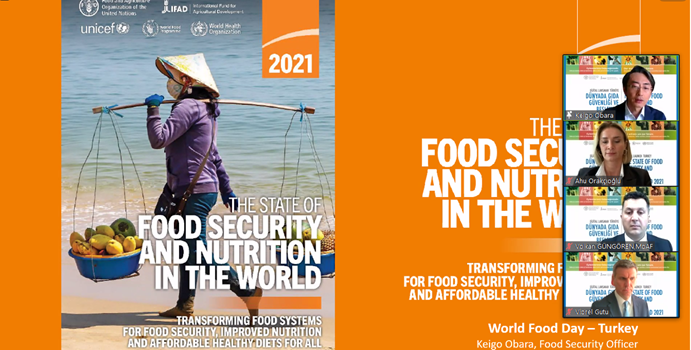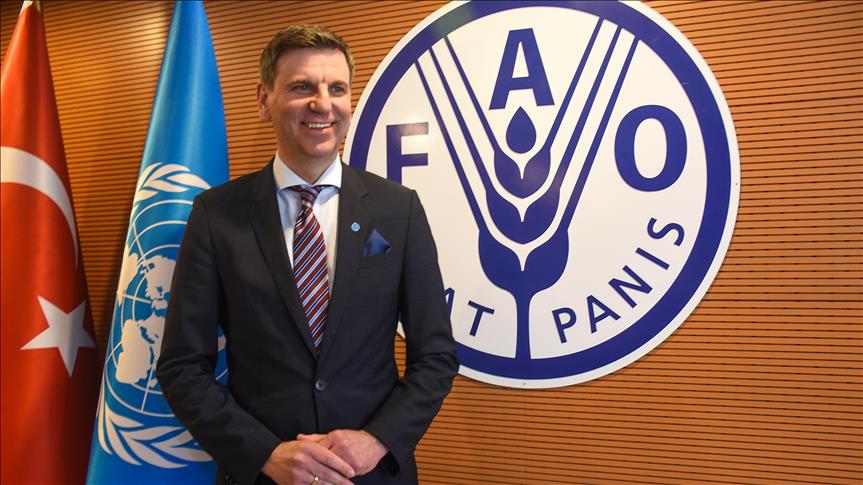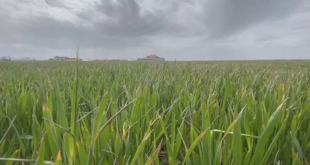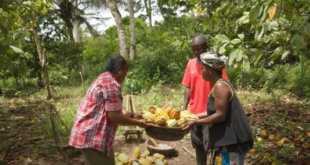Press release…
Viorel Gutu, Subregional Coordinator for Central Asia and FAO Representative in Turkey emphasized that hunger and malnutrition are on the rise and that the effects of the COVID-19 pandemic are still reverberating around the world.
7 October 2021, Virtual event – In the context of celebrations to mark World Food Day 2021, on 6 October 2021, FAO Turkey organized an event broadcast live and moderated by Ahu Orakçıoğlu to share the results of the The State of Food Security and Nutrition in the World 2021 (SOFI 2021).

The SOFI 2021 report, prepared jointly by FAO, IFAD, UNICEF, WFP and WHO, is the first evidence-based global assessment of the state of chronic food insecurity in the world following the emergence and spread of the COVID-19 pandemic. This annual flagship report also provides up-to-date information, comprehensive assessments and authoritative estimates of the state of hunger and food insecurity on a global scale.
Following a video presenting the main findings of SOFI 2021, Viorel Gutu, Subregional Coordinator for Central Asia and FAO Representative in Turkey, delivered an opening speech emphasizing that hunger and malnutrition are on the rise and that the effects of the COVID-19 pandemic are still reverberating around the world. Gutu further highlighted the major drivers of hunger, malnutrition and food insecurity – conflicts, climate variability and extremes, economic instabilities and high income inequality.
Nils Grede, the WFP Representative to Turkey, explained that enough food is produced to meet of all humanity’s needs; however, distribution problems, food loss and waste, and difficulties facing small-scale farmers hinder progress towards achieving this goal.
Bernard Hien, IFAD Director of the Sub-Regional Office for Eastern Europe and Central Asia, pointed out that SOFI 2021 provides a multi-dimensional analysis of food and nutrition, and underlined the importance of public-private sector cooperation to realizing more sustainable food systems.

Batyr Berdyklychev, WHO Turkey Representative, noted that the COVID-19 pandemic has affected both food and health systems, which are interconnected. Reflecting on the correlation between high levels of income inequality and the affordability of healthy diets, Berdyklychev explained that ensuring healthy diets for all has become an urgent issue.
The final speech of the opening session was given by Ahmet Volkan Güngören, Deputy Director -General of EU and Foreign Relations from the Ministry of Agriculture and Forestry. Güngören emphasized that Turkey is pioneering efforts among countries to initiate food systems transformation, and announced that Turkey will convene the next Agriculture Council in 2024.
Following the opening session, Keigo Obara, FAO Food Security Officer, presented the findings of SOFI 2021 in more detail. Pointing out, inter alia, that healthy diets are out of reach for around 3 billion people, Obara reflected on possible pathways towards food systems transformation.
The event continued with a panel session on SOFI 2021 featuring the participation of Ayşegül Selışık (Assistant FAO Representative in Turkey), Emre Üçkardeşler (UNICEF, Head of Social Policy Section) and Afton Halloran (Consultant, WHO European Office for Prevention and Control of Noncommunicable Diseases).
Ayşegül Selışık noted that only eight harvests remain until 2030, and questioned whether humanity could reach the SDG targets given this timeframe. She explained that agrifood systems are at a critical juncture and that COVID-19 has exposed their fragility. Given this, she emphasized the urgent need for transformative interventions towards more sustainable and inclusive agrifood systems.
Focusing on the child-related findings of SOFI 2021, Emre Üçkardeşler drew attention to the evolving nature of malnutrition in children. Üçkardeşler also briefly informed the participants about UNICEF’s efforts to reduce hunger and poverty within the framework of Cash+ and other social protection programmes.
Sharing statistics on obesity and non-communicable diseases (NCD), Afton Halloran pointed out that healthy diets play an important role in preventing NCD. Halloran also gave details on WHO’s present efforts to prevent childhood obesity in the region, and highlighted the organization’s surveillance programme and efforts to support breastfeeding.
 THE GLOBAL WINDOW OF TURKISH FOOD AND AGRICULTURE The Global Window of Turkish Food and Agriculture Sector
THE GLOBAL WINDOW OF TURKISH FOOD AND AGRICULTURE The Global Window of Turkish Food and Agriculture Sector









